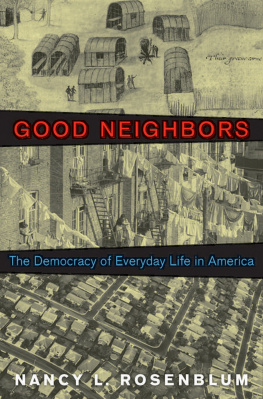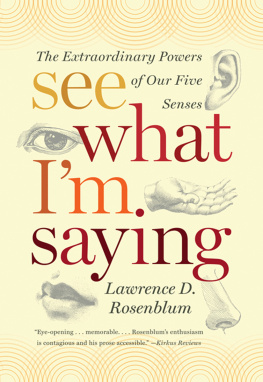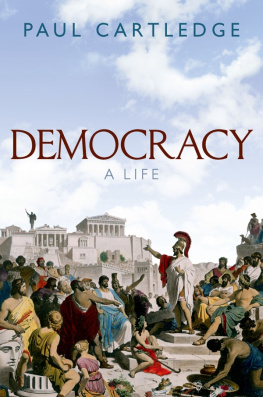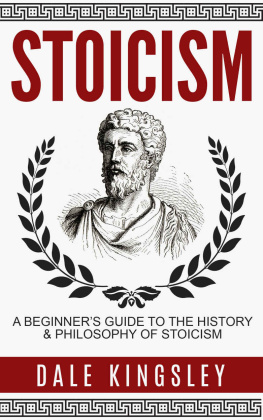
GOOD NEIGHBORS
GOOD NEIGHBORS
THE DEMOCRACY OF EVERYDAY LIFE IN AMERICA
Nancy L. Rosenblum
Princeton University Press
Princeton and Oxford
Copyright 2016 by Princeton University Press
Published by Princeton University Press, 41 William Street,
Princeton, New Jersey 08540
In the United Kingdom: Princeton University Press, 6 Oxford Street,
Woodstock, Oxfordshire OX20 1TR
press.princeton.edu
Jacket images, from the top: 1. Watercolor drawing Indian Village of
Secoton by John White (created 15851586): The Trustees of the British Museum. 2. New York tenements, 1900; courtesy of the Library of Congress. 3. Aerial view of suburban housing development, San Antonio, Texas, by David Sucsy/Getty
Jacket design by Pamela Lewis Schnitter
All Rights Reserved
Permissions for use of poetry by Robert Frost: Excerpts from Mending Wall, Two Look at Two, The Cow in Apple Time, and The Ax-Helve from the book The Poetry of Robert Frost, edited by Edward Connery Lathem; copyright 1916, 1923, 1930, 1939, 1969 by Henry Holt and Company; copyright 1944, 1951, 1958 by Robert Frost; copyright 1967 by Lesley Frost Ballantine. Used by arrangement with Henry Holt and Company.
All rights reserved.
Library of Congress Cataloging-in-Publication Data
Names: Rosenblum, Nancy L. (Nancy Lipton), 1947author.
Title: Good neighbors : the democracy of everyday life in America / Nancy L. Rosenblum.
Description: Princeton, New Jersey : Princeton University Press, 2016. |
Includes bibliographical references and index.
Identifiers: LCCN 2015039738 | ISBN 9780691169439 (hardback : acid-free paper)
Subjects: LCSH: Civil societyUnited States. | DemocracySocial aspectsUnited States. | NeighborlinessUnited States. | BISAC: PHILOSOPHY / Political. | PHILOSOPHY / Ethics & Moral Philosophy. | POLITICAL SCIENCE / Civics & Citizenship. | POLITICAL SCIENCE / History & Theory.
Classification: LCC JK1759 .R89 2016 | DDC 307.3/3620973dc23 LC record available at http://lccn.loc.gov/2015039738
British Library Cataloging-in-Publication Data is available
This book has been composed in Times Ten LT Std and Berthold Akzidenz Grotesk
Printed on acid-free paper.
Printed in the United States of America
1 3 5 7 9 10 8 6 4 2
FOR ROBERT JAY LIFTON,
LIVING SIDE BY SIDE IN WORK AND LOVE
CONTENTS
GOOD NEIGHBORS
INTRODUCTION
Good Neighbor Nation
The Quality of the Day
Take good neighbor literally: people who live nearby and contribute toor do not derangethe quality of life at home. Neighbors exhibit solicitude and hospitality but also unleash their demons on us, or in our view. Snobbery, betrayal, hypocrisy, and cruelty wreck our sleep, our nerves. Relentlessly barking dogs, blaring televisions, incessant quarrels, an excess of domestic odors. Sounds that startle us at night and disturb our sleep. Bedraggled yards. Snooping and interfering. Killing time. Wounding reputation.
Myra, in Willa Cathers novel My Mortal Enemy, is beside herself on account of her upstairs neighbors:
Why should I have the details of their stupid, messy existence thrust upon me all day long, and half the night? They tramp up there like cattle Their energy isnt worth anything so they use it up running about, beating my brains to jelly.
Around home we are unguarded; we dont always think to arrange the face we present or to modulate our words and tone when we step out our door. Proximity creates cause and occasion for arguments, slights, acts of aggression. Family aside, we have no more constant or intimate stage for exhibiting graciousness or foul temper, or worse, than where we live.
Everyone is eager to tell a story about a neighbor and even at academic colloquia I receive unsolicited diatribesfor these are mostly accounts of adversarial encounters and good turns unreturned, costly run-ins and daily insults of noise or disarray, carelessness or abject social incompetence. The stories we tell reflect our bafflement, our incredulity at the misconduct or sheer obliviousness of the people next door. Even if the trouble is decades in the past and the neighbor has moved away, people narrate their stories at a high pitchalmost as if they are talking about cruelty or betrayal (as indeed they sometimes are). True, when friends sit down to report their trials we may think how tedious. But our own neighbors are serious business.
Of course we tell our stories with feeling. Neighbors are not just people living nearby. Neighbors are our environment. They are the background to our private lives at home. When they give a sufficiently strong dose of themselves, they appear forcibly in our foreground. Bad neighbors diminish the quality of life materially and emotionally. That is, they diminish everyday life, everyday, where we live, at home. Hence the moral of Aesops fable of Minerva: a house should be made movable, by which means a bad neighborhood might be avoided.
The unique power neighbors hold over our lives is explained in one word: they affect us where we live, at home. We have no exit. And at home we are uniquely vulnerable because of the stakes, the depth and intensity of the interests we have in quotidian private life there, and our expectation of control over our personal affairs behind the door. Not least our sense of privacy itself [as] something sacred in its own right.
Call one of the neighbors. Call the Morgans. Anyone will feed a dog if you ask them to, a wife assures her husband in Raymond Carvers story A Small Good Thing. We value good neighbors, and the value we place on them comes from more than the grinding irritation and sometime dangerousness of bad ones. We can try to list the benefits and comforts we have in mind when we assure ourselves of what anyone would do, here. Feed a dog. Watchful eyes over our property and children. Sweeping the buildings common staircase. Closing the lid of the dumpster tightly. Knowing that in an emergency a nearby neighbor is likely to call for help or come to help. Often enough availability, not the act, is what counts.
We have a history of encounters with our neighbors and expectations that these will continue into the future. This inclines us to return good turns, even if that consists of nothing more than a wave or the standard, solicitous, but not insignificant, How are you today? We assess the rewards and the costs of offers and rebuffs all the time. The utility of reciprocity is certainly not lost on us, but a purely instrumental understanding of neighborliness leads us astray. Reciprocity, which provides a foothold on the difficult terrain of neighborliness, is mischaracterized if we see it as nothing more than strategic cooperation, a network of negotiated support. Instrumentalism is far from the whole of neighborly interactions. In fact, the dynamic works as often in reverse. Give and take may have little purpose except as a way of initiating and sustaining relations day to day. I am reminded of Thoreaus account of building his hut at Walden Pond:
At length, in the beginning of May, with the help of some of my acquaintances, rather to improve so good an occasion for neighborliness than from any necessity, I set up the frame of my house.
Good neighbors too are serious business. Anything is possible, from a nod of recognition to a spark of sympathy and interest, to the rare unlooked for favor that alters the day. We shouldnt underestimate the significance of mundane trespasses and kindnesses. The quotidian, local, and personal matter immensely.
If the ruling passion in man [is] a gregarious instinct to keep together by minding each others business,
Next page














